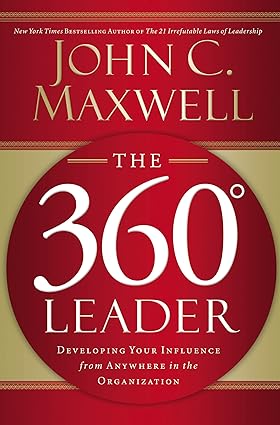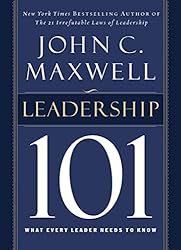But wherever he called he found Some one ahead of him. At length
he saw an advertisement for an entry clerk in a wholesale house in
Church Street. He applied and had the good fortune to please
the superintendent.
“Where have you worked before?” he asked.
“At Otis Goodnow’s, on Reade Street.”
“How much were you paid there?”
“Seven dollars a week.”
“Very well, we will start you on that salary, and see if you
earn it.”
Rodney was surprised and relieved to find that he was not asked
for a recommendation from Mr. Goodnow, knowing that he could not
obtain one. He went to work on a Monday morning, and found his
duties congenial and satisfactory.
Seven dollars a week was small, compared with what he had
received as a tutor, but he had about two hundred and fifty
dollars in the Union Dime Savings Bank and drew three dollars
from this fund every week in order that he might still assist
Mike, whose earnings were small.
One of his new acquaintances in the store was James Hicks, a boy
about a year older than himself.
“Didn’t you use to work at Otis Goodnow’s?” asked James one day
when they were going to lunch.
“Yes.”
“I know a boy employed there. He is older than either of us.”
“Who is it?”
“Jasper Redwood. Of course you know him.”
“Yes,” answered Rodney with a presentiment of evil.
He felt that it would be dangerous to have Jasper know of his
present position, but did not venture to give a hint of this
to James.
His fears were not groundless. Only the day after James met
Jasper on the street.
“Anything new?” asked Jasper.
“Yes; we’ve got one of your old friends in our store.”
“Who is it?”
“Rodney Ropes.”
Jasper stopped short, and whistled. He was excessively
surprised, as he supposed Rodney still to be Arthur
Sargent’s tutor.
“You don’t mean it?” he ejaculated.
“Why not? Is there anything so strange about it?”
“Yes. Did Ropes bring a recommendation from Mr. Goodnow?”
“I suppose so. I don’t know.”
“If he did, it’s forged.”
“Why should it be?”
“Goodnow wouldn’t give him a recommendation.”
“Why wouldn’t he?”
“Because he discharged Ropes. Do you want to know why?”
“Yes.”
“For stealing articles from the store.”
It was the turn of James Hicks to be surprised.
“I can’t believe it,” he said.
“Its true. Just mention the matter to Ropes, and you’ll see he
won’t deny it.”
“I think there must be some mistake about it. Rodney doesn’t
look like a fellow that would steal.”
“Oh, you can’t tell from appearances- Rogues are always plausible.”
“Still mistakes are sometimes made. I’d trust Rodney Ropes
sooner than any boy I know.”
“You don’t know him as well as I do.”
“You don’t like him?” said James shrewdly.
“No I don’t. I can’t like a thief.”
“You talk as if you had a grudge against him.”
“Nothing but his being a thief. Well, what are you going to do
about it?”
“About what?”
“What I have just told you.”
“I don’t feel that I have any call to do anything.”
“You ought to tell your employer.”
“I am no telltale,” said James scornfully.
“Then you will let him stay in the store, knowing him to be a thief?”
“I don’t know him to be a thief. If he steals anything it will
probably be found out.”
Jasper urged James to give information about Rodney, but he
steadily refused.
“I leave others to do such dirty work,” he said, “and I don’t
think any better of you, let me tell you, for your eagerness to
turn the boy out of his position.”
“You are a queer boy.”
“Think so if you like,” retorted Hicks. “I might give my
opinion of you.”
At this point Jasper thought it best to let the conversation drop.
He was much pleased to learn that Rodney had lost his
fine position as tutor, and was now in a place from which he
might more easily be ousted.
As he could not prevail upon James Hicks to betray Rodney he
decided to write an anonymous letter to the firm that employed him.
The result was that the next afternoon Rodney was summoned to
the office.
“Sit down Ropes,” said the superintendent. “For what store did
you work before you came into our house?”
“Otis Goodnow’s.”
“Under what circumstances did you leave?”
“I was accused of theft.”
“You did not mention this matter when you applied for a
situation here.”
“No, sir. I ought perhaps to have done so, but I presumed in
that case you would not have given me a place.”
“You are right he would not.”
“Nor would I have applied had the charge been a true one.
Articles were certainly missing from Mr. Goodnow’s stock,
but in accusing me they did me a great injustice.”
“How long since you left Mr. Goodnow’s?”
“Four months.”
“What have you been doing since?”
“I was acting as tutor to the son of Mr. Sargent, of West Fifty
Eighth Street.”
“A well known citizen. Then you are a scholar?”
“Yes, sir, I am nearly prepared for college.”
“Of course he did not know you were suspected of dishonesty.”
“On the contrary he did know it. I told him, and later he
received an anonymous letter, notifying him of the fact.”
“We also have received an anonymous letter. Here it is. Do you
recognize the hand writing?”
“Yes,” answered Rodney after examining the letter. “It was
written by Jasper Redwood.”
“Who is he?”
“A boy employed by Mr. Goodnow. For some reason he seems to
have a spite against me.”
“I admit that it is pretty small business to write an anonymous
letter calculated to injure another. Still we shall have to
take notice of this.”
“Yes, sir, I suppose so.”
“I shall have to bring it to the notice of the firm. What they
may do I don’t know. If the matter was to be decided by me I
would let you stay.”
“Thank you, sir,” said Rodney gratefully.
“But I am not Mr. Hall. You can go now and I will see you again.”
Rodney left the office fully persuaded that his engagement would
speedily terminate. He was right; the next day he was sent for again.
“I am sorry to tell you, Ropes,” said the superintendent kindly
“that Mr. Hall insists upon your being discharged. He is a
nervous man and rather suspicious. I spoke in your favor but I
could not turn him.”
“At any rate I am grateful to you for your friendly effort.”
The superintendent hesitated a moment, and then said: “Will
this discharge seriously embarrass you? Are you short of money?”
“No, sir. I was very liberally paid by Mr. Sargent, and I
saved money. I have enough in the savings bank to last me
several months, should I be idle so long.”
“I am glad of it. I hope you will remember, my boy, that this
is none of my doing. I would gladly retain you. I will say one
thing more, should Jasper Redwood ever apply for a situation
here, his name will not be considered.”
So Rodney found himself again without a position. It seemed
hard in view of his innocence, but he had confidence to believe
that something would turn up for him as before. At any rate he
had enough money to live on for some time.
When Mike Flynn learned the circumstances of his discharge he
was very angry.
“I’d like to meet Jasper Redwood,” he said, his eyes flashing.
“If I didn’t give him a laying out then my name isn’t Mike Flynn.”
“I think he will get his desert some time, Mickey, without any
help from you or me.”
“Should hope he will. And what’ll you do now, Rodney?”
“I don’t know. Sometimes I think it would be well to go to some
other city, Boston or Philadelphia, where Jasper can’t get on
my track.”
“Should hope you won’t do it. I can’t get along widout you.”
“I will stay here for a few weeks, Mike, and see if anything
turns up.”
“I might get you in as a telegraph boy.”
“That wouldn’t suit me. It doesn’t pay enough.”
Rodney began to hunt for a situation again, but four weeks
passed and brought him no success. One afternoon about four
o’clock he was walking up Broadway when, feeling tired, he stepped
into the Continental Hotel at the corner of Twentieth Street.
He took a seat at some distance back from the door, and in a
desultory way began to look about him. All at once he started
in surprise, for in a man sitting in one of the front row of
chairs he recognized Louis Wheeler, the railroad thief who had
stolen his box of jewelry.
Wheeler was conversing with a man with a large flapping
sombrero, and whose dress and general appearance indicated that
he was a Westerner.
Rodney left his seat and going forward sat down in the chair
behind Wheeler. He suspected that the Western man was in danger
of being victimized.



















